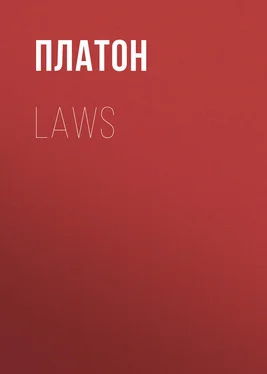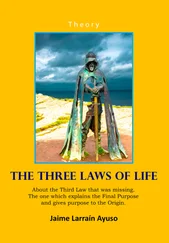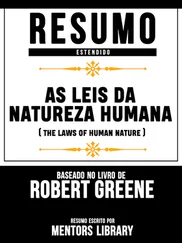Платон - Laws
Здесь есть возможность читать онлайн «Платон - Laws» — ознакомительный отрывок электронной книги совершенно бесплатно, а после прочтения отрывка купить полную версию. В некоторых случаях можно слушать аудио, скачать через торрент в формате fb2 и присутствует краткое содержание. Жанр: Философия, foreign_antique, foreign_prose, на английском языке. Описание произведения, (предисловие) а так же отзывы посетителей доступны на портале библиотеки ЛибКат.
- Название:Laws
- Автор:
- Жанр:
- Год:неизвестен
- ISBN:нет данных
- Рейтинг книги:5 / 5. Голосов: 1
-
Избранное:Добавить в избранное
- Отзывы:
-
Ваша оценка:
- 100
- 1
- 2
- 3
- 4
- 5
Laws: краткое содержание, описание и аннотация
Предлагаем к чтению аннотацию, описание, краткое содержание или предисловие (зависит от того, что написал сам автор книги «Laws»). Если вы не нашли необходимую информацию о книге — напишите в комментариях, мы постараемся отыскать её.
Laws — читать онлайн ознакомительный отрывок
Ниже представлен текст книги, разбитый по страницам. Система сохранения места последней прочитанной страницы, позволяет с удобством читать онлайн бесплатно книгу «Laws», без необходимости каждый раз заново искать на чём Вы остановились. Поставьте закладку, и сможете в любой момент перейти на страницу, на которой закончили чтение.
Интервал:
Закладка:
At the beginning of the fourth book, after enquiring into the circumstances and situation of the colony, the Athenian proceeds to make further reflections. Chance, and God, and the skill of the legislator, all co-operate in the formation of states. And the most favourable condition for the foundation of a new one is when the government is in the hands of a virtuous tyrant who has the good fortune to be the contemporary of a great legislator. But a virtuous tyrant is a contradiction in terms; we can at best only hope to have magistrates who are the servants of reason and the law. This leads to the enquiry, what is to be the polity of our new state. And the answer is, that we are to fear God, and honour our parents, and to cultivate virtue and justice; these are to be our first principles. Laws must be definite, and we should create in the citizens a predisposition to obey them. The legislator will teach as well as command; and with this view he will prefix preambles to his principal laws.
The fifth book commences in a sort of dithyramb with another and higher preamble about the honour due to the soul, whence are deduced the duties of a man to his parents and his friends, to the suppliant and stranger. He should be true and just, free from envy and excess of all sorts, forgiving to crimes which are not incurable and are partly involuntary; and he should have a true taste. The noblest life has the greatest pleasures and the fewest pains…Having finished the preamble, and touched on some other preliminary considerations, we proceed to the Laws, beginning with the constitution of the state. This is not the best or ideal state, having all things common, but only the second-best, in which the land and houses are to be distributed among 5040 citizens divided into four classes. There is to be no gold or silver among them, and they are to have moderate wealth, and to respect number and numerical order in all things.
In the first part of the sixth book, Plato completes his sketch of the constitution by the appointment of officers. He explains the manner in which guardians of the law, generals, priests, wardens of town and country, ministers of education, and other magistrates are to be appointed; and also in what way courts of appeal are to be constituted, and omissions in the law to be supplied. Next – and at this point the Laws strictly speaking begin – there follow enactments respecting marriage and the procreation of children, respecting property in slaves as well as of other kinds, respecting houses, married life, common tables for men and women. The question of age in marriage suggests the consideration of a similar question about the time for holding offices, and for military service, which had been previously omitted.
Resuming the order of the discussion, which was indicated in the previous book, from marriage and birth we proceed to education in the seventh book. Education is to begin at or rather before birth; to be continued for a time by mothers and nurses under the supervision of the state; finally, to comprehend music and gymnastics. Under music is included reading, writing, playing on the lyre, arithmetic, geometry, and a knowledge of astronomy sufficient to preserve the minds of the citizens from impiety in after-life. Gymnastics are to be practised chiefly with a view to their use in war. The discussion of education, which was lightly touched upon in Book ii, is here completed.
The eighth book contains regulations for civil life, beginning with festivals, games, and contests, military exercises and the like. On such occasions Plato seems to see young men and maidens meeting together, and hence he is led into discussing the relations of the sexes, the evil consequences which arise out of the indulgence of the passions, and the remedies for them. Then he proceeds to speak of agriculture, of arts and trades, of buying and selling, and of foreign commerce.
The remaining books of the Laws, ix-xii, are chiefly concerned with criminal offences. In the first class are placed offences against the Gods, especially sacrilege or robbery of temples: next follow offences against the state, – conspiracy, treason, theft. The mention of thefts suggests a distinction between voluntary and involuntary, curable and incurable offences. Proceeding to the greater crime of homicide, Plato distinguishes between mere homicide, manslaughter, which is partly voluntary and partly involuntary, and murder, which arises from avarice, ambition, fear. He also enumerates murders by kindred, murders by slaves, wounds with or without intent to kill, wounds inflicted in anger, crimes of or against slaves, insults to parents. To these, various modes of purification or degrees of punishment are assigned, and the terrors of another world are also invoked against them.
At the beginning of Book x, all acts of violence, including sacrilege, are summed up in a single law. The law is preceded by an admonition, in which the offenders are informed that no one ever did an unholy act or said an unlawful word while he retained his belief in the existence of the Gods; but either he denied their existence, or he believed that they took no care of man, or that they might be turned from their course by sacrifices and prayers. The remainder of the book is devoted to the refutation of these three classes of unbelievers, and concludes with the means to be taken for their reformation, and the announcement of their punishments if they continue obstinate and impenitent.
The eleventh book is taken up with laws and with admonitions relating to individuals, which follow one another without any exact order. There are laws concerning deposits and the finding of treasure; concerning slaves and freedmen; concerning retail trade, bequests, divorces, enchantments, poisonings, magical arts, and the like. In the twelfth book the same subjects are continued. Laws are passed concerning violations of military discipline, concerning the high office of the examiners and their burial; concerning oaths and the violation of them, and the punishments of those who neglect their duties as citizens. Foreign travel is then discussed, and the permission to be accorded to citizens of journeying in foreign parts; the strangers who may come to visit the city are also spoken of, and the manner in which they are to be received. Laws are added respecting sureties, searches for property, right of possession by prescription, abduction of witnesses, theatrical competition, waging of private warfare, and bribery in offices. Rules are laid down respecting taxation, respecting economy in sacred rites, respecting judges, their duties and sentences, and respecting sepulchral places and ceremonies. Here the Laws end. Lastly, a Nocturnal Council is instituted for the preservation of the state, consisting of older and younger members, who are to exhibit in their lives that virtue which is the basis of the state, to know the one in many, and to be educated in divine and every other kind of knowledge which will enable them to fulfil their office.
III. The style of the Laws differs in several important respects from that of the other dialogues of Plato: (1) in the want of character, power, and lively illustration; (2) in the frequency of mannerisms (compare Introduction to the Philebus); (3) in the form and rhythm of the sentences; (4) in the use of words. On the other hand, there are many passages (5) which are characterized by a sort of ethical grandeur; and (6) in which, perhaps, a greater insight into human nature, and a greater reach of practical wisdom is shown, than in any other of Plato's writings.
1. The discourse of the three old men is described by themselves as an old man's game of play. Yet there is little of the liveliness of a game in their mode of treating the subject. They do not throw the ball to and fro, but two out of the three are listeners to the third, who is constantly asserting his superior wisdom and opportunities of knowledge, and apologizing (not without reason) for his own want of clearness of speech. He will 'carry them over the stream;' he will answer for them when the argument is beyond their comprehension; he is afraid of their ignorance of mathematics, and thinks that gymnastic is likely to be more intelligible to them; – he has repeated his words several times, and yet they cannot understand him. The subject did not properly take the form of dialogue, and also the literary vigour of Plato had passed away. The old men speak as they might be expected to speak, and in this there is a touch of dramatic truth. Plato has given the Laws that form or want of form which indicates the failure of natural power. There is no regular plan – none of that consciousness of what has preceded and what is to follow, which makes a perfect style, – but there are several attempts at a plan; the argument is 'pulled up,' and frequent explanations are offered why a particular topic was introduced.
Читать дальшеИнтервал:
Закладка:
Похожие книги на «Laws»
Представляем Вашему вниманию похожие книги на «Laws» списком для выбора. Мы отобрали схожую по названию и смыслу литературу в надежде предоставить читателям больше вариантов отыскать новые, интересные, ещё непрочитанные произведения.
Обсуждение, отзывы о книге «Laws» и просто собственные мнения читателей. Оставьте ваши комментарии, напишите, что Вы думаете о произведении, его смысле или главных героях. Укажите что конкретно понравилось, а что нет, и почему Вы так считаете.












